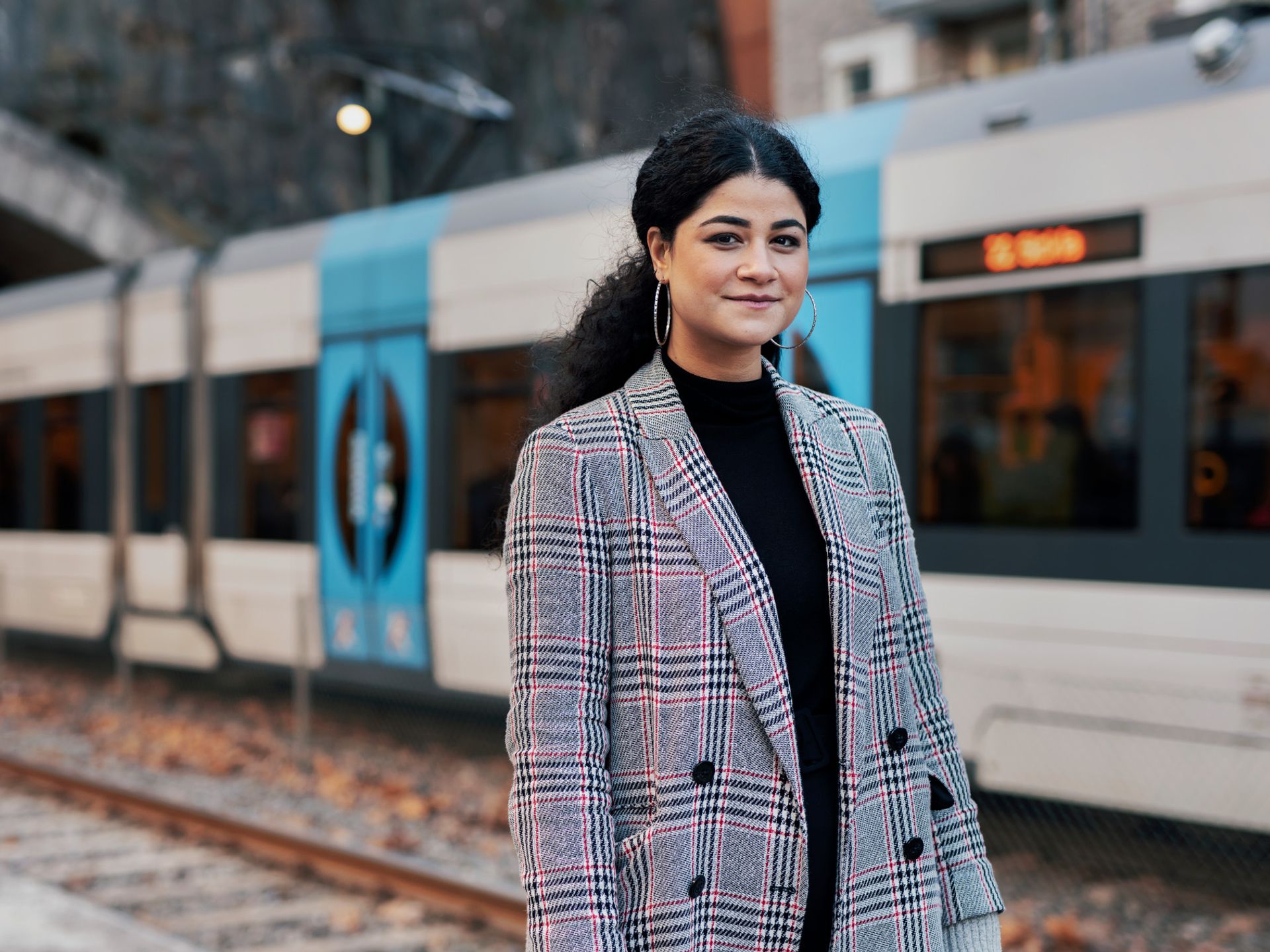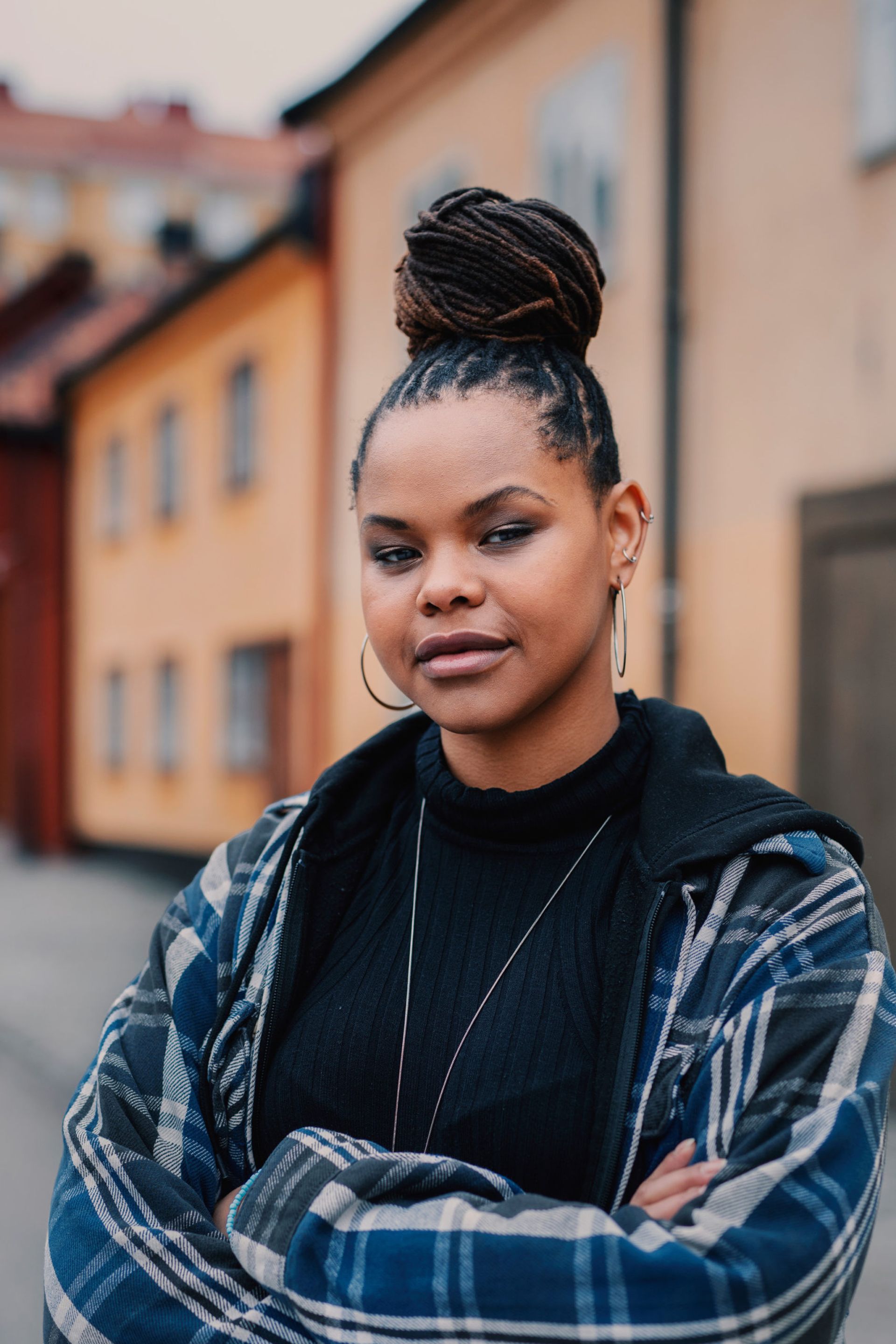Higher education in Sweden
There’s more to a study experience than accolades 🏆 and rankings – and that’s what we can offer. Come study with us and live and learn the Swedish Way.
Alright, listen. The fact is, you won’t find the world’s number one university 🎓 here. But so what? 🤷🏿♂️ You’re looking for something different. And while everyone else has been trying to outdo each other we’ve been trying our best to work together and make the world a better place.
So what do you get with us? A better you. A better quality of life, better goals, better teaching facilities, the greater outdoors, a fairer society to be part of… enough?
Oh, and you get to wake up each morning 🌄 and do things the Swedish Way.

“I had a lot more freedom with my studies. I could pick and choose and study however I wanted” – Marina, Uppsala University.
Photo: Oskar Omne
First names only – no titles here.
Sure, calling your lecturers by their first name might feel strange at first. But you’ll get used to it. And you’ll love the informality and sense of equality that exists in the Swedish classroom. It really allows for a free and open way of working.
Get ready to question your lecturers, your peers, the way things have always been done. 🤔
We don’t have all the answers. We can learn as much from you as you can learn from us. So get ready to question everything. Challenge the status quo. 🙋 And it’s okay for conflict to exist. As long as it’s approached in a spirit of respect and generosity. And with an openness to seeing and understanding something from another perspective.
Focus on learning – not punishing failure.
You won’t be spoon fed your degree here. You’re responsible for your own learning. You’ll learn to develop your own thoughts and reflections. And you’ll focus on the quality of what you learn and what you produce. And if you fail? That’s okay too. It’s an important part of learning and success.
“You can keep taking re-takes and no-one thinks you’re stupid”

“I loved the discussion seminars. Students had a lot to say. And they were allowed to say a lot. And we felt so free to discuss ideas and challenge each other. That was fun” – Sanjay, Malmö University.
Photo: Oskar Omne & Artwork: Miraculum 510 by Backa Carin Ivarsdotter.
Group work is a big thing here.
It’s inevitable. And sometimes you’ll feel like your group assignments are never-ending. Or there’ll be times where two people in your group just. Can’t. Agree. On. Anything. Or you might encounter that one person who doesn’t want to pull their weight. And yes, that’ll drive you up the wall.
But here’s the thing. It’ll make you a better team player. A better collaborator. And what about your problem-solving skills? Yep. They’ll improve too. Group work is challenging and rewarding and frustrating and prepares you for your future career and workplace. Up for the challenge? Thought so. You’ll fit in here just fine. 👏🏼
Know when to speak up. And when not to. ⚡
Seminars aren’t all about sitting behind desks and being dictated to. They’re all about discussions. And arguments, and collaboration, and cooperation. They’re also the place to speak up, take risks, encourage debate. But there are times when you can, and should, be silent. When you should prioritise listening to your classmates over the need to make your voice heard simply to feel like you’re contributing something.

“Studying here is definitely less formal than I’m used to. But there’s also more group work, so you get to engage with the people that are in your class”
The academic year starts in August and ends in June. 📆
It’s pretty simple. So the academic year is divided up into two semesters. The autumn semester always starts at the end of August and runs until mid-January. But don’t worry, there’s usually a short break at the end of December. And the spring semester? You’ll start back in mid-January and it’ll last until early June.
Full-time studies basically means you’ll be studying 40 hours a week.
But don’t expect to be in lectures or seminars or tutorials all day, everyday. In fact, you might be looking at only a couple of hours in the classroom a week. But that doesn’t mean you’ll be slacking off the rest of the time. Well, no. Not at all. You’ll be reading, 📚 working on group projects, focusing on assignments. Stuff like that.
So your actual schedule, and how much – or little – time spent in class will depend on your subject. Studying a technical subject? You’ll probably be in class or lab more often than not. And social sciences? You’ll have lectures and seminars too. But independent study or group work might take up a large chunk of your time.
Your programme is made up of a number of courses. But you won’t take them all at the same time.
Here’s where Sweden is different from other countries. You might be used to taking several courses at the same time, over the entire academic year. But here? You might only take one course at a time for a period of several weeks, and have an exam at the end of that course. And directly after that exam? Your next course will start.